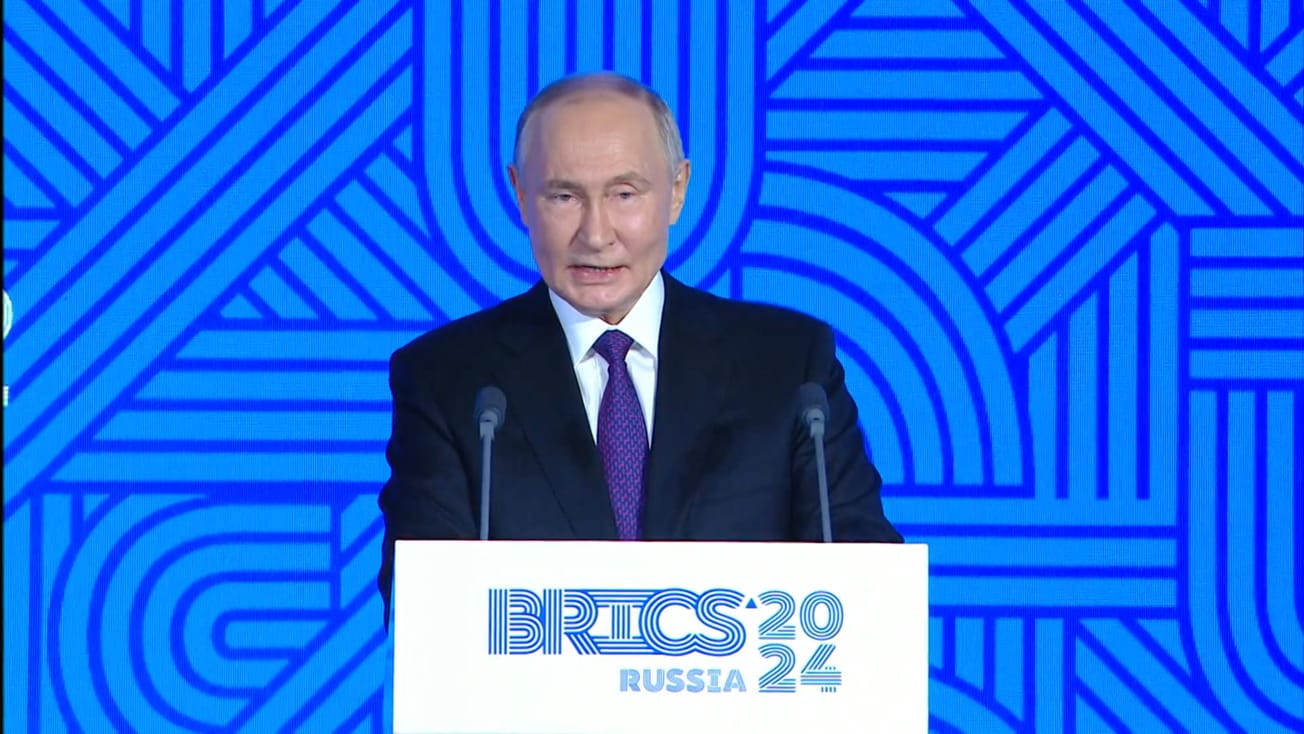The world is more and more disgusted by the establishment elites promoting the “rules-based order,” while those elites themselves seem either delusionally optimistic about their chances, or are simply indifferent to the rest of the world. It is as though people and nations are coming to inhabit two separate, parallel universes. One universe—that of Anglo-American NATO—centers on conflicts, on an endless list of enemies to overcome, on ongoing war, on supremacy through hindering the growth of others, on fear of others. The second universe—exemplified by the BRICS-Plus process—envisions a new paradigm of international affairs, where win-win cooperation is possible, where human development is more important than hegemonism, where bloc conflict becomes a thing of the past.
Which, if either, of these two universes is the real one? Which will be the shape of the future?
In Germany, the collision of world views is apparent in a miniature drama surrounding a program at the Berlinale international film festival. The curators of the Forum Expanded program have called for a ceasefire, as have over 100 participants. But the Bild tabloid newspaper was so outraged by this call and several Instagram posts that it shrieks that “anti-Semitism” must be wiped out. (Perhaps Germany should shift from feeling guilty about the Holocaust, to taking responsibility to end the killing in Gaza.)
This week, the International Court of Justice will conclude its session of oral pleadings regarding the UN General Assembly’s 2022 request for an advisory opinion on the Israeli occupation of Palestinian territory, as it hears from Türkiye, Zambia, Fiji, Spain, and the Maldives. This week is also the one-month deadline set by the ICJ in its Jan. 26 order that Israel report on actions it has taken over the month to ensure its behavior is in keeping with the provisional measures ordered by the court: to prevent genocide or calls for genocide, and to ensure the provision of humanitarian assistance.
Negotiations on a hostages-for-ceasefire truce continue, with Israeli and Hamas negotiators expected to continue their discussions in Qatar.
But a series of truces does not a peace make.
And Netanyahu has made it clear that, regardless, he will stick with his (impossible) goal of “eliminating Hamas,” in operations that will necessarily kill thousands or tens of thousands more civilians.
Where has the future gone? Who is thinking about the people of fifty years from now? Who is planning the long-term investments into science, technology, infrastructure, education, health, and culture necessary to maintain a growing, flourishing, developing human population?
If you don’t know where you’re going, will you ever get there?
The LaRouche movement, as represented by LaRouche candidates Diane Sare and José Vega, and through such policies as the Oasis Plan, brings a vision of the future, of a new security and development architecture detailed by Helga Zepp-LaRouche, that has already gripped much of the world, and has the potential to succeed in changing even the United States!








